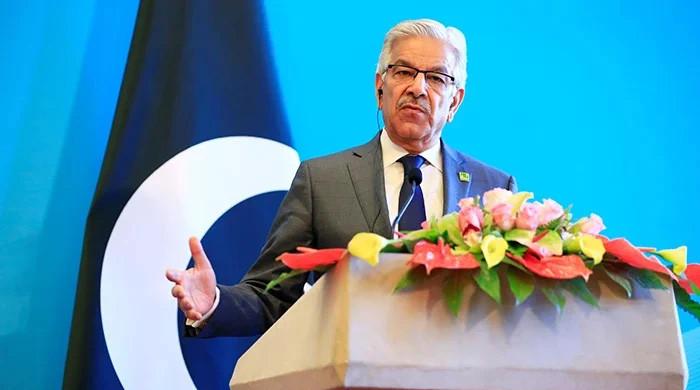VPN ban poses threat to IT industry's survival: P@SHA
These measures could lead to irreparable financial losses, says Sajjad Mustafa Syed
November 20, 2024

- P@SHA warns of reputational damage to the IT industry.
- "VPNs are global standard for ensuring data protection."
- WISPAP calls for balanced approach to VPN regulation.
Pakistan Software Houses Association (P@SHA) — the apex body representing Pakistan’s IT sector — has cautioned that the ongoing internet slowdown and restrictions on virtual private network (VPN) use pose an existential threat to the industry.
In a statement, The News reported that P@SHA Chairman Sajjad Mustafa Syed warned that these measures could lead to irreparable financial losses, service disruptions and reputational damage, particularly in the export of IT and IT-enabled Services (ITeS).
He explained that blocking VPNs would significantly disrupt operations for IT companies, call centres and BPO organisations, leading to the loss of major Fortune 500 clients.
"VPNs are a global standard for ensuring data protection and cybersecurity, which are critical to our clients. Any intrusion into these security protocols by public or private institutions is unacceptable to international companies," he stated.
Highlighting the industry’s significance, Sajjad noted that IT exports reached $3.2 billion in FY24. He estimated short-term losses in tens of millions of dollars, while the long-term impact, including reputational and intangible damage, could be devastating.
"This will deliver a severe blow to one of Pakistan’s fastest-growing industries, with ripple effects on other sectors of the economy, as IT is now integral to all industries," he said.
Sajjad emphasised that domestic and international IT companies might be forced to scale back or cease operations in Pakistan if the current situation persists.
Such an outcome would be catastrophic for an industry pivotal to the country’s export growth, skill development and job creation.
He added that this would also undermine key initiatives driven by P@SHA in collaboration with the Ministry of IT & Telecom (MoITT), the Special Investment Facilitation Council (SIFC), and the Prime Minister's Office (PMO).
He expressed concern over the demoralising impact on IT companies, their workforce, startups, freelancers, and others striving to position Pakistan as a global technology hub.
While reiterating P@SHA’s support for the state’s fight against all forms of terrorism — be it physical, psychological, financial, or cyber — Sajjad argued that economic stability and export growth are vital to addressing Pakistan’s enduring balance of payments (BoP) and socio-economic challenges.
Sajjad highlighted the IT industry’s remarkable growth, with IT and ITeS exports expanding by 30% annually and projected to surpass $15 billion in the next five years — if the government ensures consistent policies supporting exports, infrastructure, and fiscal incentives.
He also warned that freelancers and remote workers, who heavily rely on VPNs, would face substantial disruptions to their businesses. Many IT firms and freelancers might have to relocate operations overseas, incurring operational costs estimated at $100-150 million annually.
Sajjad called for a strategic approach to address security concerns without resorting to a blanket ban on VPNs, which would cripple the IT industry and take years to recover.
He urged the government to engage with P@SHA, industry leaders and stakeholders to devise a balanced framework that safeguards both national security and the operational needs of the IT sector.
"P@SHA is ready to offer its full support and expertise to facilitate an immediate roundtable discussion. Together, we can develop actionable and effective measures that uphold Pakistan’s security interests while fostering the growth of its IT exports," he concluded.
WISPAP calls for 'balanced' approach
Separately, the Wireless & Internet Service Providers Association of Pakistan (WISPAP) has stressed the need for a balanced and collaborative approach to regulating VPNs in Pakistan.
WISPAP Chairman Shahzad Arshad, in a statement, highlighted the dual-purpose nature of VPN technology and cautioned against blanket restrictions that could hinder legitimate users and economic progress.
He explained that while VPNs have the potential for misuse, their primary functions include safeguarding privacy, enabling secure communication, and providing access to critical online resources.
"These tools are foundational to economic growth, innovation, and the preservation of digital freedoms, especially in globalised economies where secure communication is paramount," he stated.
The chairperson underscored the neutrality of technological tools like VPNs, emphasising that the intent behind their use determines whether they align with ethical and legal standards.
"Regulatory measures should focus on deterring harmful activities without impeding legitimate use cases that drive progress and safeguard data integrity," he added.
WISPAP expressed support for responsible technology use in compliance with national laws and societal values but urged policymakers to ensure that regulations do not compromise equitable access to knowledge, commerce and security.
The chairperson warned that sweeping restrictions or negative narratives around VPNs could alienate segments of society, particularly those relying on such tools for lawful purposes, including IT exports, financial transactions and academic research.
As a representative body of Pakistan’s internet ecosystem, WISPAP advocated for a collaborative effort among regulators, service providers and societal representatives.
"A cooperative approach can balance ethical societal imperatives with the technical realities of the digital era, ensuring that the internet remains a productive and secure platform for all," the chairperson concluded.











